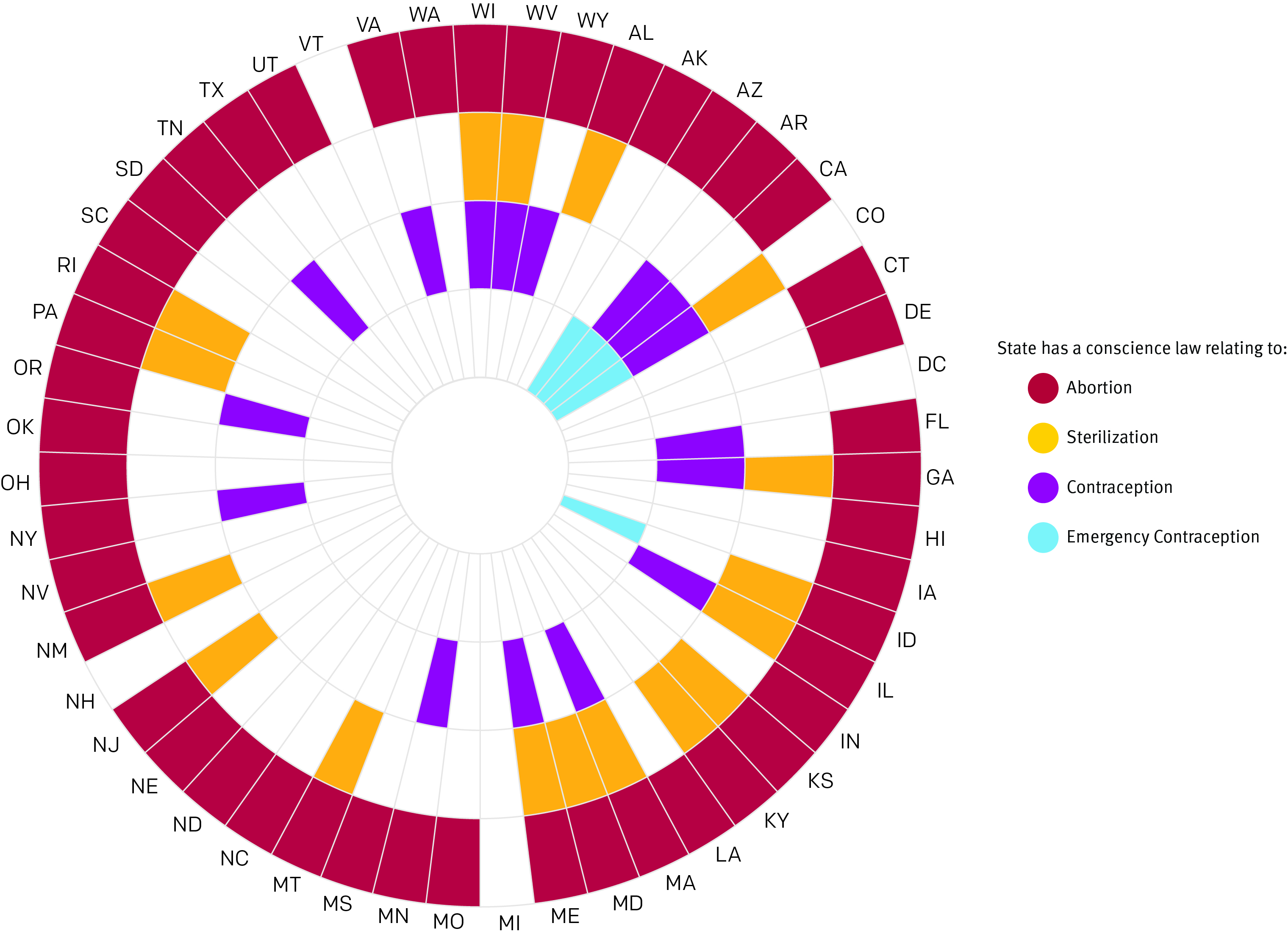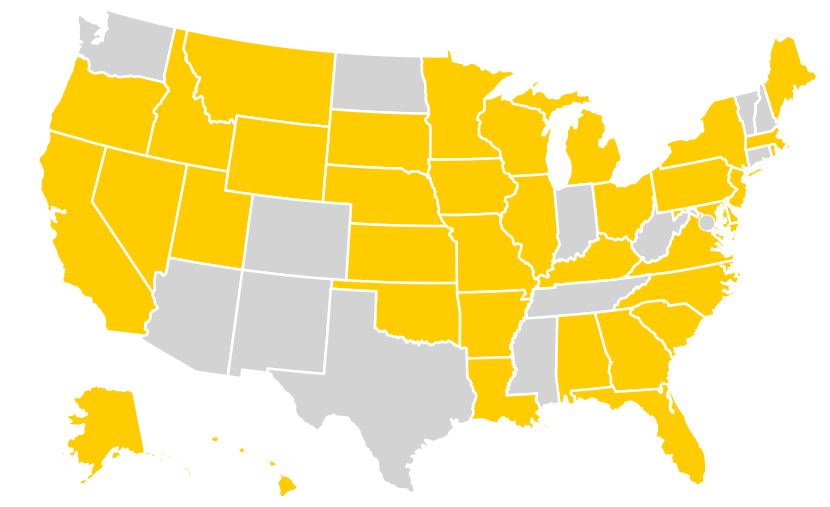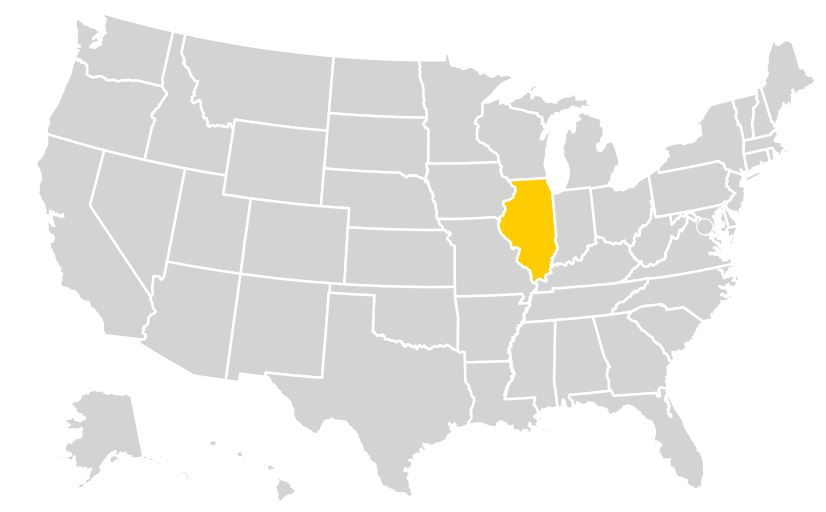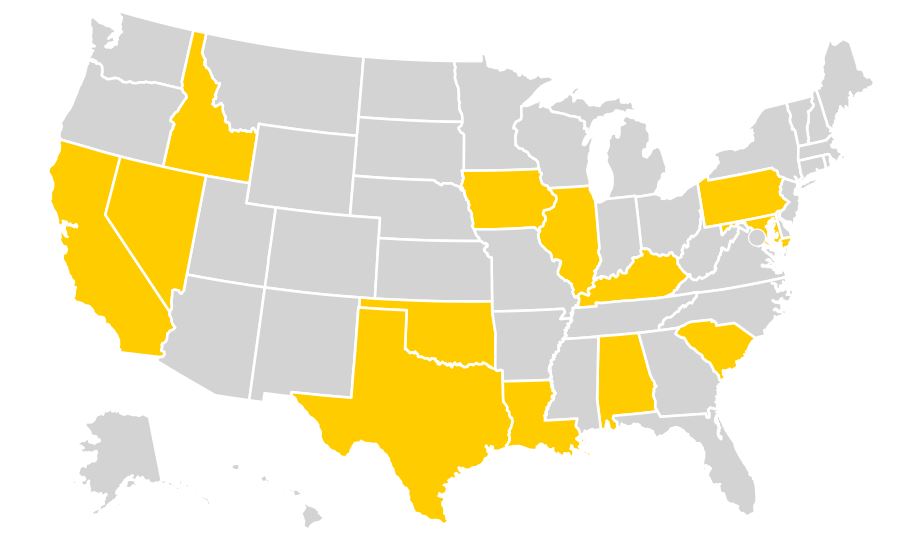By Nadia N. Sawicki
Scholarship and public debate about law’s role in protecting health care providers’ conscience rights often focus on who should be protected, what actions should be protected, and when and whether there should be any limitations on conscience rights.
But the how of these legal protections is rarely addressed – that is, when health care providers decline to participate in medical services that violate their deeply-held beliefs, exactly what consequences do state laws protect them from? The new dataset I’ve just released on LawAtlas answers this question in the context of reproductive health conscience laws, and reveals some surprising trends.
Most state conscience laws establish explicit procedural protections that relieve providers from adverse consequences that might arise as a result of their conscience-driven refusals to provide medical services. These legal immunities may protect against adverse employment action, discipline by professional licensing boards, civil liability, loss of public or private funding, discrimination in educational opportunities, or other consequences. In a recent article in the Hastings Center Report, Disentangling Conscience Protections, I argue that policymakers should pay greater attention to the distinctions between these various types of protections, as some may be more defensible than others.
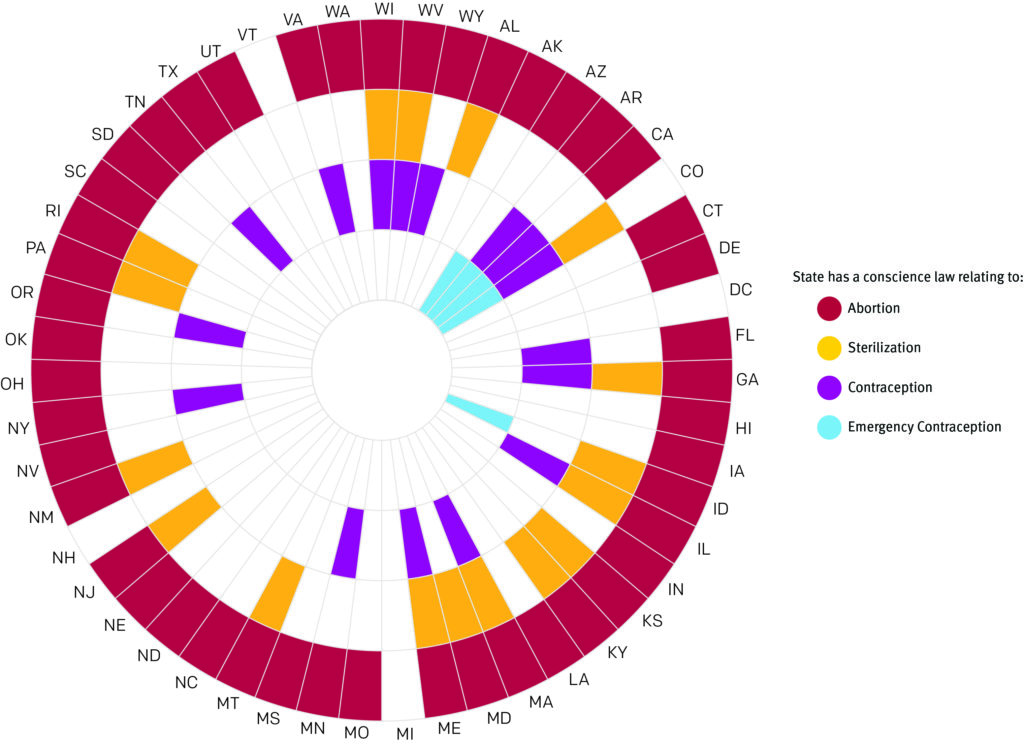
Because I was not able to find hard data about the scope of procedural protections established by state conscience laws, I set out to collect it myself. Well, not quite by myself—rather, with the support of five dedicated research assistants, the staff of the Policy Surveillance Program at Temple University’s Center for Public Health Law Research, and an incredible software tool for collecting and coding legal text (MonQcle – check it out!).
The study was conducted in accordance with best methodological practices from the social sciences for policy surveillance and legal mapping. Our team coded reproductive conscience laws from all 50 states and the District of Columbia by: i) the type of medical service they are applicable to; ii) which explicit procedural protections they establish; iii) which providers, if any, benefit from civil immunity; iv) whether there are any patient-protective limitations to the right of refusal or civil immunity; and v) whether the laws have been held unenforceable in whole or in part by a judicial decision.
The full dataset and research protocol are now available on LawAtlas. For a fuller normative analysis of the implications of this data, see my forthcoming California Law Review article, The Conscience Defense to Malpractice.
Some key findings include:
- Reproductive Conscience Laws: 46 states have conscience laws establishing individual and/or institutional health care providers’ right to refuse participation in abortion. Fewer jurisdictions have laws relating to conscience-driven refusal to participate in sterilization (17 states), contraception (16 states), or emergency contraception (5 states). Some states also protect providers in the context of research or treatment involving stem cells (4 states), cloning (3 states), research on gametes or embryos (2 states), assisted reproductive technology (Maryland), genetic counseling (Virginia), medical use of fetal tissue (Oklahoma), and umbilical cord blood banking (Pennsylvania).
- Scope of Procedural Protections: In the 46 states with conscience laws that address providers’ refusal to participate in abortion, the most common procedural protections established are immunity from civil liability (37 states), disciplinary action (30 states), discrimination (26 states), and adverse employment action (26 states).
- Immunity from Civil Liability: 37 states have conscience laws that explicitly prohibit providers from being sued on the basis of their conscience-driven refusal to participate in abortion. However, other states’ laws are drafted in ways that might be read to imply civil immunity. All but three of the 37 states that expressly establish civil immunity in cases of abortion refusal protect an extremely broad category of individual providers – either “persons” generally, all health care providers, or staff and employees of health care facilities. All but five of these 37 states establish civil immunity for at least some health care facilities.
- Patient-Protective Limitations: Among the 46 states with abortion conscience laws, 13 limit providers’ right to refusal or civil immunity in cases where a patient is need of emergency treatment. Maryland is the only state that explicitly limits a provider’s right to civil immunity where his conduct has violated the medical standard of care – but only in cases where the provider breaches a duty to give a referral and that breach causes the patient’s death or serious physical injury. Illinois is the only state that explicitly requires refusing providers to comply with common law duties to inform patients about all legal treatment options and their risks and benefits.
My hope is that scholars and policymakers will be able to use this data to better understand the breadth of conscience protections in the reproductive health sphere, and to inform policy debates about the appropriate scope of health care conscience laws. Stay tuned for more research about the scope of procedural protections in conscience laws that relate to end-of-life care, life-sustaining treatment, advance directives, and decisions by health care surrogates.
